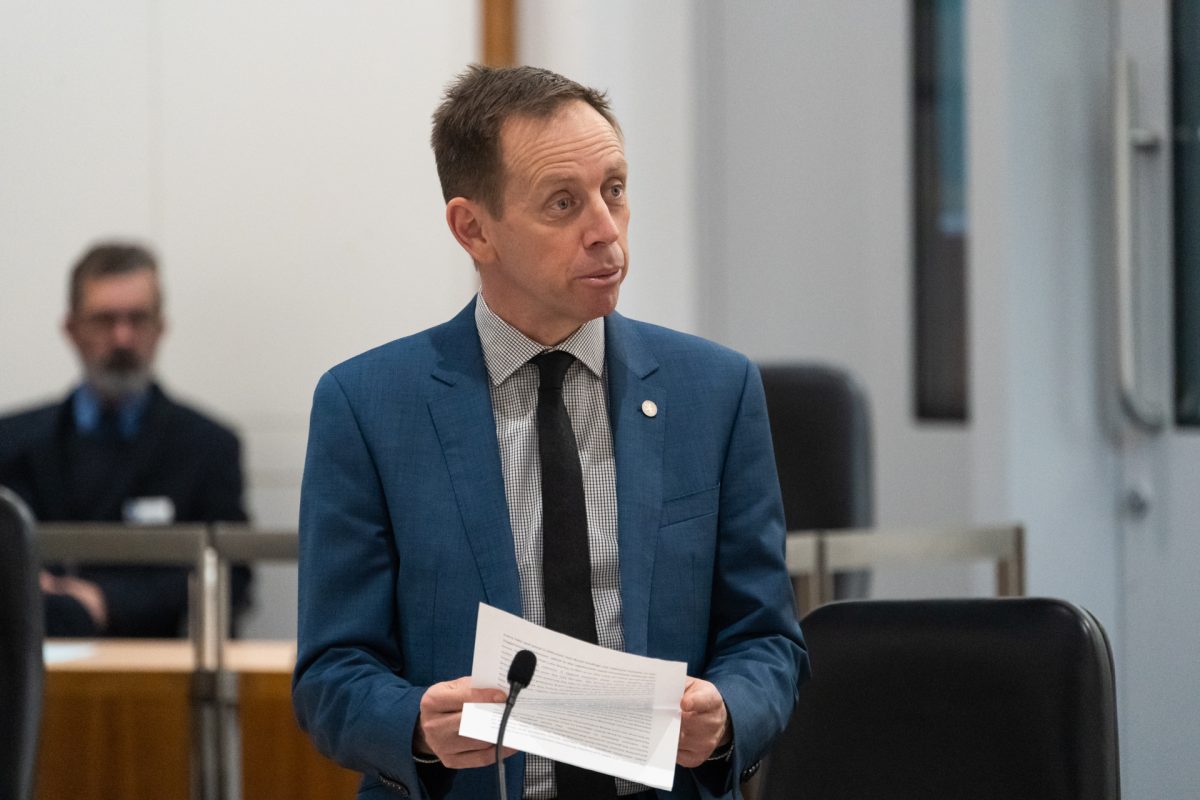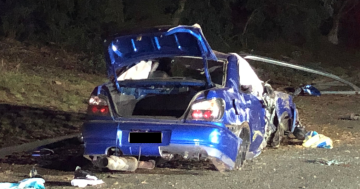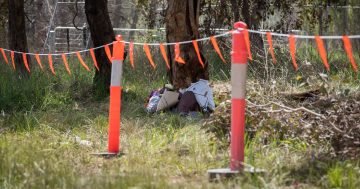
Attorney-General Shane Rattenbury has outlined multiple pieces of work underway on the matter of sentencing outcomes and bail laws, and dangerous driving offences. Photo: Region.
The ACT Government has doubled down on its refusal to commit to a wide-ranging review of the Territory’s bail laws and sentencing outcomes, arguing there is work already underway in this area.
Attorney-General Shane Rattenbury said yesterday he was unclear what the purpose of another review would be – even though that is what the police union specifically wants.
The Australian Federal Police Association (AFPA) most recently came out with a scathing critique of the sentence handed to disability advocate Sue Salthouse’s killer Mitchell Laidlaw.
ACT Supreme Court Chief Justice Lucy McCallum sentenced Laidlaw to two years and three months’ jail on 24 August, suspended once he serves three months if he enters into a two-year good behaviour order.
Since killing Ms Salthouse in July 2020, he has also been sentenced for multiple drug driving offences, although drugs were determined not to have played a role in the death of Ms Salthouse.
AFPA said the sentence for killing Ms Salthouse failed to meet community expectations.
The latest plea follows a recent string of alleged offences committed by people on bail in the Territory over the past month.

Disability advocate Sue Salthouse was killed in 2020. Photo: Sue Salthouse Leadership Fund.
Advocates, including Tom McLuckie, whose son Matthew was killed in a head-on collision on his way home in May, have also specifically pushed the government to examine dangerous driving offences, sentences and recidivism in this area.
Labor backbencher Dr Marisa Paterson said in budget estimate hearings yesterday (24 August) that there are growing complaints from victims and the community more broadly that sentences for dangerous and culpable driving offences are inadequate.
“There are issues around cars in the ACT. There are issues with cars being stolen and the police’s ability to respond to that. There are issues with bail and recidivism in that respect,” she said.
“I believe the calls in the community are around sentencing for these particular crimes.”
Attorney-General Shane Rattenbury indicated he was not sure what the purpose of any more reviews would serve.
“The ACT Government is being proactive in seeing to tackle recidivism,” he said.
Mr Rattenbury said police were also being proactive in this space by setting up a car theft task force to tackle repeat offenders.
He said that the Justice and Community Safety (JaCS) Directorate is examining if sentencing outcomes in the ACT were “significantly” different from other states and territories.
“[That] will be able to show whether there are systemic issues at play in the ACT,” he said.
“We need to be wary of considering individual matters when trying to ensure that we have a fair and balanced system.”
Mr Rattenbury argued against a broad-brush characterisation of the ACT as a “lenient jurisdiction”, saying the statistics refuted this.
But he did not have figures to hand on the specific matter of motor vehicle offences, including dangerous or culpable driving.
He noted the Territory had maximum penalties commensurate with other states and territories.
“It is then up to the independent judiciary to examine all of the facts of the matter and to make that very complex and at times challenging weigh-up of all of the various factors,” he said.
Mr Rattenbury said Minister for Transport and City Services Chris Steel was “conducting a piece of work” on driving offences separate from JaCS.
The Attorney-General could not say when that would be completed, but he did confirm, following a recent meeting with the police union, he had brought some new matters to Mr Steel’s attention.
There are no timeframes for the delivery of either of those reviews.
Multiple petitions have been lodged to the ACT Legislative Assembly by Mr McLuckie on the issue of bail, sentencing and recidivism.
A committee inquiry into dangerous driving is also underway.




















